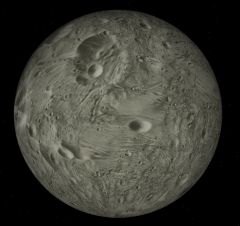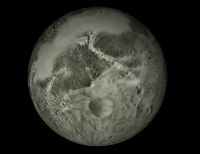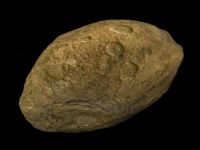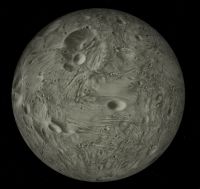Sycorax
Sycorax (Uranus XVII, S/1997 U 2) is one of the outer retrograde irregular satellites of Uranus and the largest of the irregulars. It was discovered at the Hale Telescope on 6 September 1997. It is named after the mother of Caliban in Shakespeare's The Tempest.
Sycorax in Orbiter
Sycorax was first introduced into Orbiter with the add-on uranus.zip in November 2002.
| Add-on | Source | Version | Author | Type | Release Date | Compatibility | Wiki article |
|---|---|---|---|---|---|---|---|
| The Outer Planets 050125 | AVSIM | 050125 | Rolf Keibel Tony Dunn |
Scenery | 26 January 2005 | Orbiter 2005-P1 | |
| Uranus Minor Moons | O-F Resources | 2004-12-14 | Nighthawke | Scenery | 14 December 2004 | ||
| Uranus | AVSIM | Rolf Keibel | Scenery | 5 November 2002 | |||
| Uranus's natural satellites |
|---|
| Named Satellites:
Ariel | Belinda | Bianca | Caliban | Cordelia | Cressida | Cupid | Desdemona | Ferdinand | Francisco | Juliet | Mab | Margaret | Miranda | Oberon | Ophelia | Perdita | Portia | Prospero | Puck | Rosalind | Setebos | Stephano | Sycorax | Titania | Trinculo | Umbriel Numbered Satellites: |
| See also: Pronunciation key | rings of Uranus |
| edit The Solar System | |
|---|---|
| Central star |
Sun (Sol) |
| Planets |
Mercury - Venus - Earth - Mars - Jupiter - Saturn - Uranus - Neptune |
| Natural satellites |
Moon - Phobos - Deimos - Io - Europa - Ganymede - Titan - more... |
| Add-ons |
Planets - Dwarf Planets - Small objects - Natural satellites - Alternative star systems |
 | This natural satellite related article is a stub. You can help Orbiterwiki by expanding it.
|





